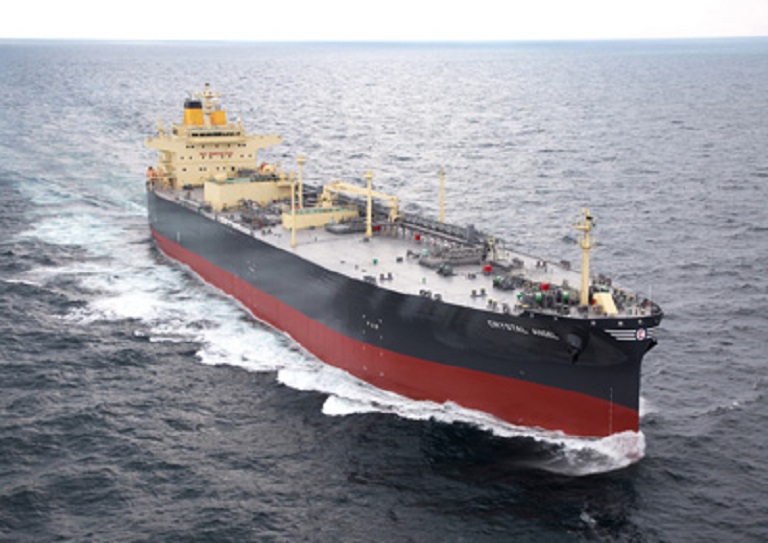Kawasaki Heavy Industries, Ltd. delivered on February 9 the CRYSTAL ANGEL (Kawasaki hull No. 1741), an 82,200 m3 capacity liquefied petroleum gas (LPG) carrier, for KUMIAI NAVIGATION (PTE) LTD. This is the 61th LPG carrier and the 12th vessel of the same type to be built by the company.

Delivery, principal particulars, and features of the vessel are as described below:
Principal Particulars:
| Length overall | 229.90 m |
| Length between perpendiculars | 226.00 m |
| Molded breadth | 37.20 m |
| Molded depth | 21.00 m |
| Molded draft | 11.20 m |
| Gross tonnage | 47,236 |
| Deadweight | 53,995 t |
| Hold capacity | 82,402 m3 |
| Main engine | One set of Kawasaki-MAN B&W 7S60ME-C8.2 diesel engine |
| Complement | 29 people |
| Classification | Nippon Kaiji Kyokai (ClassNK) |
| Country of registration | Singapore |
Features
- This vessel adopts Kawasaki's uniquely developed bow shape called SEA-Arrow, which significantly improves propulsion performance by minimizing bow wave resistance.
- The main engine powering the vessel is an energy-efficient, electronically-controlled, ultra-long-stroke, two-stroke low-speed diesel engine. In addition, the Kawasaki rudder bulb system with fins (RBS-F) and the semi-duct system with contra fins (SDS-F) contribute to reducing fuel consumption.
- In order to satisfy new restrictions on SOx emissions which is implemented by the International Maritime Organization (IMO) in this year **, the vessel includes a set of SOx scrubber at the exhaust gas outlets of the main engine and the power generation engine. With this system, general fuel oil can be used continuously after the regulations are tightened, without the need of switching to low sulfur fuel oil.
- Four independent cargo tanks are installed in the cargo holds for carrying liquefied petroleum gas. The tanks are designed to provide optimal thermal insulation and absorb low-temperature contraction.
- The cargo tanks are made with special cryogenic steel for loading LPG with a minimum temperature of –46°C. The tanks are wrapped in urethane foam for thermal insulation.
The vessel is designed to be able to navigate the newly expanded Panama Canal, which was completed in June 2016.
Source: Kawasaki